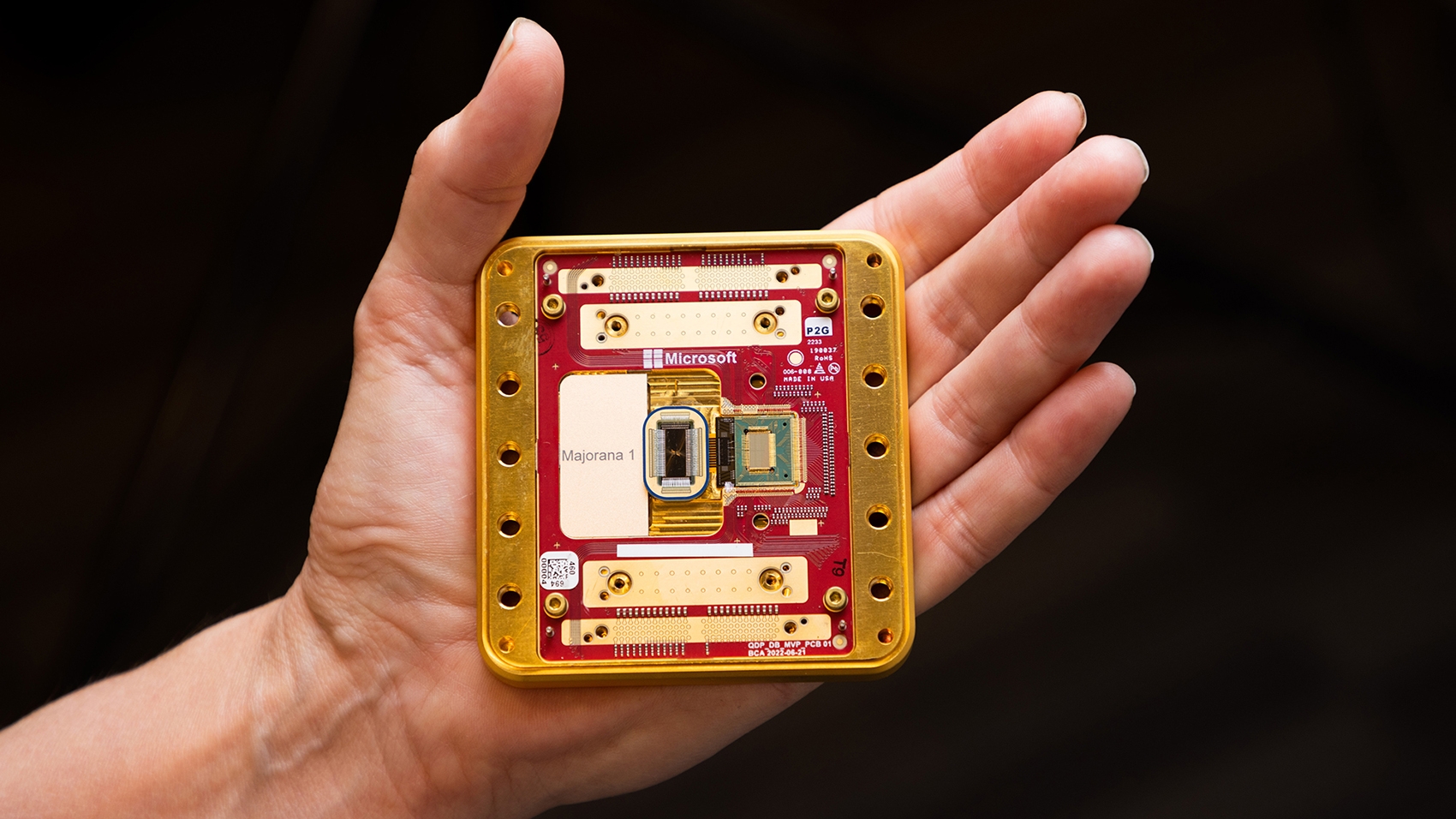
Will Microsofts Majorana 1 Chip Hasten the Quantum Arms Race?
www.informationweek.com
Shane Snider, Senior Writer, InformationWeekFebruary 19, 20254 Min ReadPhoto provided by MicrosoftTech giant Microsoft on Wednesday revealed its Majorana 1, a palm-sized topoconductor chip that uses a new type of matter as a conductor will allow quantum systems to solve incredibly complex problems.The development could pave the way for a new era of computing -- along with a new era of high-powered cyberattacks.Quantum computing uses quantum physics to solve problems that are too complex for classical bit-based computers. Businesses and governments have poured billions of dollars into quantum research, with companies and nations jockeying for the promised competitive advantage.Microsoft says its chip provides a path for quantum systems to access up to a million qubits, which would be enough power to deliver real-world solutions that could revolutionize industry, logistics, healthcare, and much more. The topoconductor, or topological superconductor, can create a new state of matter that is not solid, liquid or gas, Microsoft said in a blog post.Its one thing to discover a new state of matter, Chetan Nayak, Microsoft technical fellow, said in a statement. Its another to take advantage of it to rethink quantum computing at scale.The particles used in the chip, called Majoranas, do not exist in nature and had to be created with magnetic fields and superconductors. The exotic particles were first envisioned by Microsoft nearly 20 years ago to develop topological qubits that offered more stability and requiring less error correction. Microsoft says the resulting qubits are more stable and can be digitally controlled.Most of us grew up learning there are three main types of matter that matter: solid, liquid, and gas. Today, that changed, Microsoft CEO Satya Nadella said in a post on X. Imagine a chip that can fit in the palm of your hand yet is capable of solving problems that even all the computers on Earth today combined could not!The breakthrough required new materials made of indium arsenide and aluminum, much of which the company designed and produced atom by atom.Whatever youre doing in the quantum space needs to have a path to a million qubits, Nayak said. If it doesnt, youre going to hit a wall before you get to the scale at which you can solve the really important problems that motivate us. We have actually worked out a path to a million.What Does One Million Qubits Buy?Microsoft says the advancement may mean that practical uses for quantum computing may be reachable in years instead of decades. Those uses could pave the way for self-healing materials that can undo corrosion or cracks, allowing for safer airplane parts or more reliable bridge construction, for instance.Any company that makes anything could just design it perfectly the first time out, Matthias Troyer, a Microsoft technical fellow, said in a statement. The quantum computer teaches the AI the language of nature so the AI can just tell you the recipe for what you want to make.Quantum holds promises to unlock world-changing advancements in medicine, agriculture, machine learning, supply chain logistics, and much more. Aside from lofty, monumental advancements, businesses can look forward to more accessible and tangible benefits of quantum computing.Business philosopher, author and speaker Anders Indset says IT leaders should embrace the idea that quantum computing will soon be a big part of operations. CIOs should be asking, What is my future business model, what are the things I can do if I could apply that additional computing power, he tells InformationWeek in a phone interview. You can envision and anticipate these types of business models... I think we are now seeing the birth of the quantum economy.Race to Get Quantum-ReadyBut quantums potential will also be attractive to threat actors.Microsofts announcement adds to the excitement created by Google when it released its own new quantum chip last year, saying commercial quantum computing applications were only five years away. IBM has teased large-scale quantum computer availability by 2033.Cybersecurity experts warn that quantum could usher in a whole new era of threats. Quantum-powered attacks could easily crack todays most sophisticated cryptography protecting critical systems. The National Institute of Standards and Technology has called for the federal government to migrate systems to post-quantum cryptography by 2035.An accelerated timeline could prove challenging to secure critical systems. A worldwide effort is already underway to deploy post-quantum cryptography (PQC) that will defend against quantums ability to quickly hack systems.If quantum computers can crack todays encryption, does that mean all our passwords, bank accounts, and national security data are at risk? Not necessarily, writes Fabrizio Micucci, a consultant with SHI International, in a LinkedIn post. Governments and organizations worldwide are developing quantum-resistant encryption methods. Microsofts breakthrough accelerates the timeline -- meaning that businesses, financial institutions, and cybersecurity firms must now prepare.Indset agrees securing quantum is now an immediate need. "The whole field of security will be lead to heavy investments in storing and securing for post quantum cryptography," he says. "This type of announcement will obviously increase the drive and the need to secure many, many critical infrastructures for quantum."Micucci believes the transition to quantum-safe encryption needs to happen within the next decade.The quantum revolution is no longer a distant dream -- its happening now, Micucci writes.Read more about:Quantum ComputingAbout the AuthorShane SniderSenior Writer, InformationWeekShane Snider is a veteran journalist with more than 20 years of industry experience. He started his career as a general assignment reporter and has covered government, business, education, technology and much more. He was a reporter for the Triangle Business Journal, Raleigh News and Observer and most recently a tech reporter for CRN. He was also a top wedding photographer for many years, traveling across the country and around the world. He lives in Raleigh with his wife and two children.See more from Shane SniderNever Miss a Beat: Get a snapshot of the issues affecting the IT industry straight to your inbox.SIGN-UPYou May Also LikeWebinarsMore WebinarsReportsMore Reports
0 Comments
·0 Shares
·57 Views


